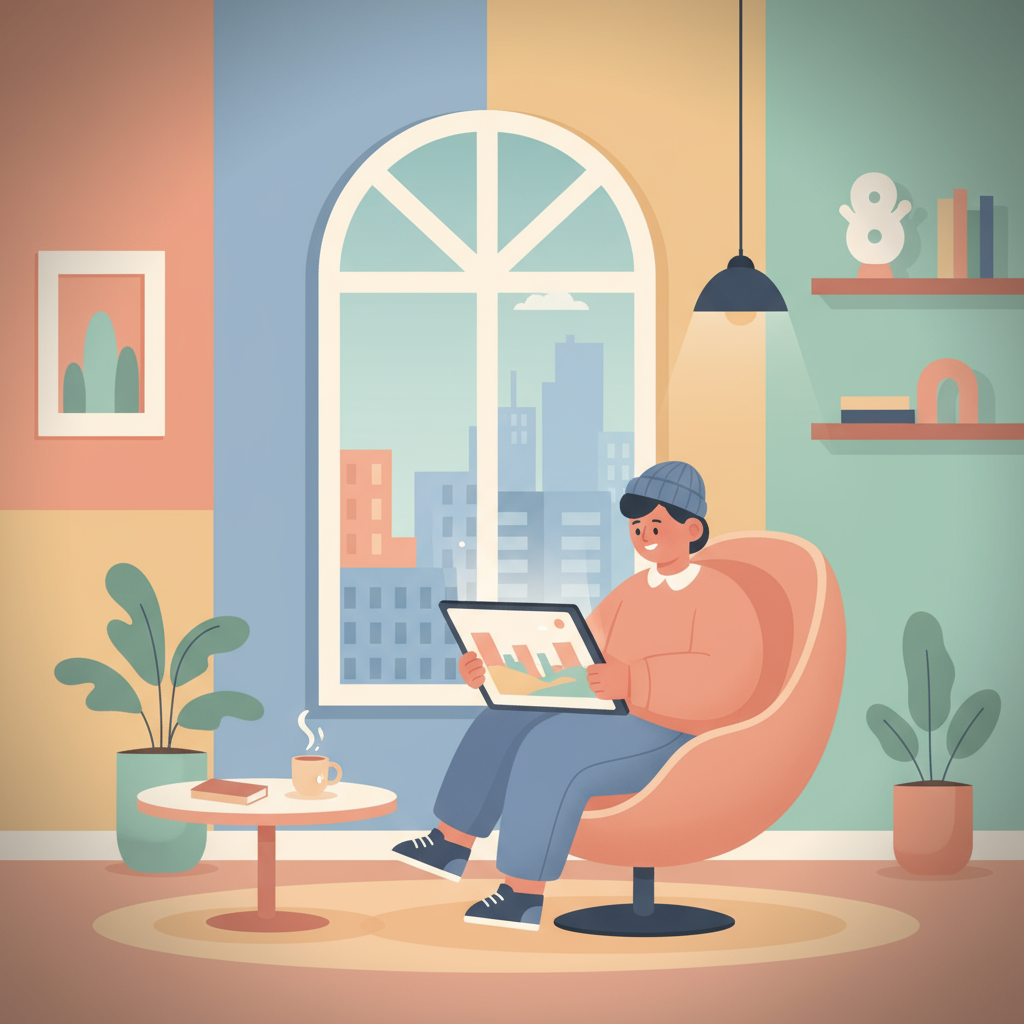Developing strong digital art skills can feel overwhelming, especially with the wide array of tools and techniques out there. Many urban artists struggle to find a clear way forward to improve consistently without getting discouraged.
The key to growing your digital art skills lies in adopting simple daily habits that build your foundation bit by bit. Focusing on fundamentals like drawing practice, understanding digital tools, and color theory can make a huge difference over time.
In this article, you will discover three realistic and easy-to-follow daily habits that any urban artist can use to progressively master digital art and boost confidence in your creations.
Your 3 Daily Habits to Develop Digital Art Skills
Habit 1 — Daily Purposeful Drawing Practice
Why: Regular drawing practice is the cornerstone for developing digital art skills. Drawing daily trains your hand-eye coordination and muscle memory essential for smooth lines and shapes.
How: Spend 15 to 30 minutes drawing on your digital tablet focusing on specific aspects like line quality, shapes, or sketching everyday objects. Use reference images to guide your practice and avoid drawing purely from imagination at the start.
Cue: Dedicate the first 15 minutes after starting your work session to this habit to make it consistent.
Habit 2 — Explore and Experiment With Digital Tools
Why: Digital art software offers various brushes, layers, and effects that can enhance your art. Mastering these tools expands your creative possibilities and makes your workflow efficient.
How: Allocate time each day to try a new brush or feature with small sketches. Experiment with layers to understand how to separate elements and enhance your edits without fear of mistakes.
Cue: Pair this habit with your drawing practice as a cool-down activity to keep learning fun and active.
Habit 3 — Learn and Apply Basic Color Theory
Why: Knowing how colors work together dramatically improves your digital paintings’ visual impact and professionalism.
How: Pick a color harmony like complementary or analogous colors and create quick studies using those palettes. Also, study color psychology to convey moods effectively in your work.
Cue: At the end of your art session, spend 5 to 10 minutes creating a small color composition focused on these principles.
Week 1 Schedule
| Day | Activity | Details |
|---|---|---|
| Monday | Drawing Practice | Draw simple shapes and lines focusing on smooth strokes |
| Tuesday | Tool Exploration | Try new brushes and experiment with layers in a doodle |
| Wednesday | Color Study | Create a small palette study using complementary colors |
| Thursday | Drawing Practice | Sketch everyday objects with references on your tablet |
| Friday | Tool Exploration | Practice blending modes and effects for texture |
| Saturday | Color Study | Experiment with color psychology by evoking a mood |
| Sunday | Review and Reflect | Review weekly work, note progress and set goals |
Troubleshooting
Barrier: Feeling overwhelmed by too many digital tools and options.
Fix: Stick to learning one tool or feature at a time during daily practice. This focused approach simplifies your path to developing digital art skills.
Barrier: Getting frustrated with slow progress.
Fix: Remember that skill development takes time. Track your daily efforts and compare your art over weeks to see real improvement.
Barrier: Skipping practice due to busy schedules.
Fix: Keep sessions short and manageable — even 10 minutes daily contributes greatly to developing digital art skills.
FAQs
Q: How long should I practice daily to develop digital art skills?
A: Consistency matters more than duration. Aim for at least 15 to 30 minutes daily to build steady progress.
Q: Do I need expensive tablets or software?
A: Not necessarily. Mastering basics and using whatever tools you have is more important than owning the latest gear for developing digital art skills.
Q: How do I stay motivated when my art looks bad initially?
A: Embrace imperfections as part of learning. Celebrate small wins and track progress over weeks to stay motivated.
Tracking & Motivation Tips
Create a daily log of your art activities with notes on what you practiced and what you learned. Use visual progress check-ins, like weekly galleries of your work, to see improvement unfold. Sharing your art with peers or online communities can also spur motivation and provide valuable feedback as you develop digital art skills.
Key Takeaways for Developing Digital Art Skills
Developing digital art skills is a journey best taken through consistent, manageable daily habits. Focus on purposeful drawing practice, tool exploration, and color theory basics. These habits build a strong foundation and keep your creative momentum alive. Patience and steady effort will transform your digital art over time.




